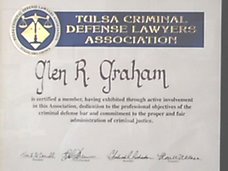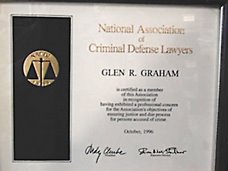From Barry Derryberry:
The good OCCA cases on search incident to arrest are outlined below.
If the teenager is sitting in the car when the cops come up and say we're arresting you for curfew violation, that would appear to be within the core of the search incident to arrest (hereafter: "SIA") doctrine. If he's outside the car, the case can be likened to Fields (below) & others you could find around the country, where courts have held the space the arrestee occupies is the parameter of the search, i.e. can't go to adjacent rooms under SIA doctrine. However, a SCt case decided a couple of years ago kills this argument (I think it's Thornburgh), where arrest occurred when the motorist was at the rear of the vehicle, and SCt held that permitted search ofthe entire vehicle. Your stand is on the below OCCA cases, which are not automatically abrogated by SCt rulings, and independent Art.II Sec. 30. You might have an argument that the cops created the exigency, which is a no-no, because they could have let the drivergo with a ticket and that would have resolved the concern about thekid accessing a weapon in the car.Defendant exits vehicle prior to arrest. Fields v. State, 463 P.2d1000 (Okl.Cr. 1970) After being stopped by the police for no tag light, Def exited vehicle and approached the officers' vehicle. One officer frisked the Def while the other searched the vehicle. Gun found in the glove compartment. Incident to a lawful arrest, the arresting officer may search the person, as well as the immediate area within his control, forweapons he might be able to reach or for other evidence or contraband he might seek to destroy:The area of permissible search will be governed by the proximity of the arrestee to the point of search and the possibility of the arrestee having access to the area or place searched while he is inthe custody of the arresting officer. The search was unjustified because the Def had already left hisautomobile when arrested and searched by the officers. If the Defhad remained in his car, a search of the interior of his automobilewould have been justified. Therefore, the search extended beyond lawful limits in connection with an arrest. Defendant handcuffed and placed in patrol car at time of search.Norton v. State, 501 P.2d 877 (Okl.Cr. 1972). Def and his companion arrested & confined in separate police carswhen the officers began search of Def's car. Officers seized a nailbar which linked the Def to a recent burglary. Search, clearlybeyond the reach of the Def as he sat in the patrol car, exceeded the area in which it was reasonable to search for a weapon.(Thompson v. State is similar)Def arrested inside of home, but officers search vehicle indriveway. Sitsler v. State, 603 P.2d 1142 (Okl.Cr. 1979) Def had been arrested inside of his home and transported to the jail.Officers left Def's vehicle in the driveway unattended for twenty tothirty minutes before returning to search the vehicle. The officers seized a knife which they believed to have been taken during arecent robbery. Def was subsequently convicted of robbery with afirearm. OCCA: Chimel limits such a search to the arrestee's person and the area "within his immediate control--construing that phraseto mean the area from within which he might gain possession of a weapon or destructible evidence." When a person is arrested insideof his house, a car parked in the driveway cannot be considered tobe within the arrestee's immediate control. Therefore, the searchwas illegal and the seizure of the knife was also illegal.Def restrained and car locked. Castleberry v. State, 678 P.2d 720 (Okl.Cr. 1984). Both Defs were restrained - one handcuffed, the other was on theground with an officer pointing a gun at him - at the time of thesearch. The officer took the Def's keys, unlocked the doors and trunk, and searched the car. As a result of the search, the officer seized cocaine from a Band-Aid box from the interior of the car andnarcotics from a suitcase found in the trunk.Since the car doors and trunk were locked, there was no danger ofthe Defs procuring a weapon or destroying evidence from the interiorof the car once the officer gained possession of the Def's keys. Therefore, search far exceeded the bounds of a permissible search ofthe area within his immediate control.
Summary of Search Incident to Arrest Law
Subscribe to:
Post Comments (Atom)






No comments:
Post a Comment